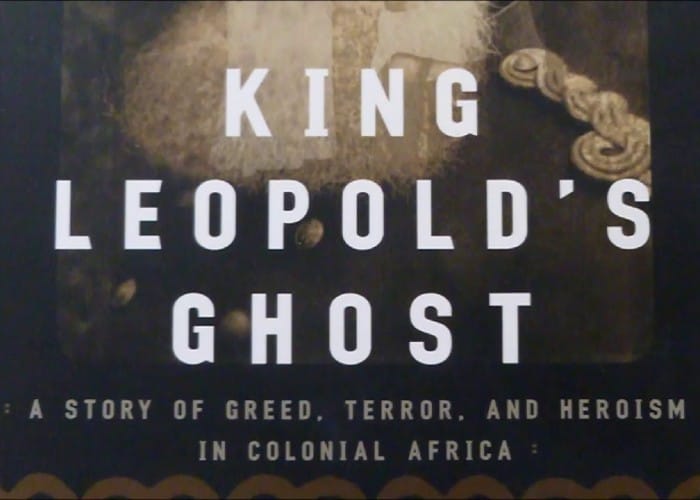
Ben Affleck is a busy man. In addition to being a household name in front of the camera, he’s also a talented director with award-winning credentials. For his next directorial effort, Deadline reports, he will dramatize the atrocities that King Leopold II inflicted on the Congolese people. The 19th-century Belgian monarch’s crimes have been compared to history’s worst mass murderers.
Affleck will direct King Leopold’s Ghost from a script by Farhad Safinia. The film will revolve around the titular king’s genocidal regime and the human rights activists whose combined efforts to expose Leopold’s crimes helped the rest of the world find out about what really went on at the time.
The story is based on the Adam Hochschild book King Leopold’s Ghost: A Story of Greed, Terror and Heroism in Colonial Africa. The book was met with both acclaim and controversy upon release because the author accused Leopold of being as evil as Josef Stalin and Adolf Hitler. Some Belgian historians and politicians disagree with such comparisons, so the upcoming movie is bound to fuel some debate.
Critics of the book believe the claims that Leopold was a mass murderer who oversaw the genocide of the Congolese people are exaggerated. However, that’s exactly what happened. The monarch politically maneuvered to acquire a country, subsequently employing soldiers to enslave the population and enforce his laws. This resulted in the deaths of at least eight million people, though some historians believe that the figure was much higher.
Leopold’s decision to exploit the Congo came about during the height of European imperialism in Africa. The king believed that Belgium had to get involved in order to be a successful nation on par with its neighbors. He set about obtaining the Congo in 1876 by establishing a charitable organization known as the International African Association. Leopold used the organization to convince the Belgian people and the major powers of Europe that his interest in Africa was humanitarian, but he had selfish ambitions.
At the Berlin Conference of 1884–85, the European powers allocated the Congo to Leopold’s company. Unlike most other African nations colonized by European countries at the time, the Congo wasn’t controlled by the Belgian government. Leopold received personal ownership of the entire nation. This allowed the monarch to exploit its natural resources — such as ivory and rubber — for profit while forcing the nation’s people to pay extraordinarily high taxes to Belgium.
As noted by the New York Times, Congolese slaves were tortured and beaten to death at the time. Others died as a result of famine and disease. The army also rampaged throughout the country, plundering villages and slaughtering the residents. There are stories detailing how the soldiers dismembered people and kidnapped children to hold at ransom.
Leopold’s army also commanded Congolese tribes — many of whom were cannibals — and ordered them to unleash brutality on their fellow citizens. Many of these native soldiers were kidnapped at a young age and raised as mercenaries to aid in Leopold’s corrupt scheme. Perhaps the fact that the tribes contributed to the atrocities of the Congolese people deflected some of the blame away from Leopold.
The Digital Journal documented how one of Leopold’s mercenaries described the annihilation of a village that tried to resist their dominance.
“The commanding officer ordered us to cut off the heads of the men and hang them on the village palisades, also their sexual members, and to hang the women and the children on the palisade in the form of a cross.”
The king and his regime were barbaric, but their legacy isn’t remembered as such by everyone. One of the reasons Leopold is not discussed among other genocidal dictators is because of his positive contributions to Belgian society. He spearheaded several urban projects and built many celebrated buildings and public works, including the Royal Museum of Central Africa. Of course, he funded these projects with the blood money he made from exploiting Congo.
Furthermore, given that Leopold’s motivations were based on self-fulfillment as opposed to spreading an extreme ideology, he is rarely associated with the likes of Stalin and Hitler. That said, the reality is that he was still a dictator who allowed the genocide of millions of people to be carried out in his name. He’s not different from any other mass murderer in that regard.
Leopold’s reign of terror ended in 1908 when international outrage forced the Belgian state to take control of the Congo, which it controlled until 1960. Even though other western countries — the United Kingdom, United States, Spain, etc. — were behind some history’s worst horrors pertaining to colonization, most of them condemned Leopold for his actions.
In the grand scheme of things, Leopold’s crimes have been overlooked by history. People rarely discuss the plight of the Congo under his rule, but it’s important to remember the monarch as the monster he truly was. Affleck’s movie will hopefully raise more awareness of his savagery, which the Congolese people are still feeling the effects of to this day.
Related Topics: Ben Affleck, King Leopold's Ghost, Real Stories

